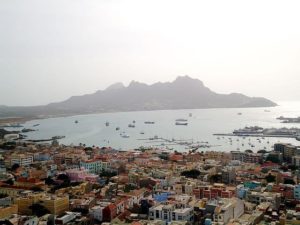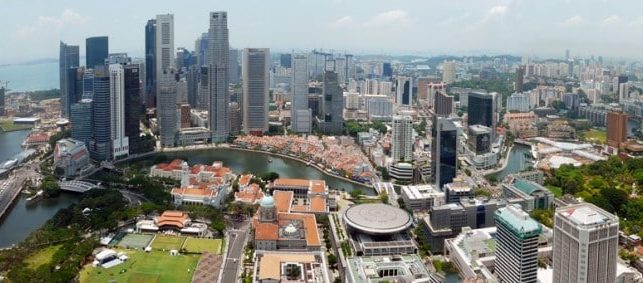According to US think tank The Heritage Foundation and the Wall Street Journal, Mauritius, Botswana and Cape Verde are the most “economically free” countries on the African continent
At the beginning of each year, the Wall Street Journal and The Heritage Foundation release their economic freedom index, ranking countries from the most economically free to least economically free. Economic freedom is defined as the fundamental right of every human to control her or his labor or property. In an economically free society, citizens are free to work, produce, consume and invest in whatever way they see fit, and labor, capital and goods are able to move freely without undue restrictions. The index is based upon a total of 10 indicators divided into four broad groups: rule of law (property rights and freedom from corruption); limited governance (government spending and fiscal freedom); regulatory efficiency (business freedom, labor freedom and monetary freedom); and open markets (trade freedom, investment freedom and financial freedom).
Africa and the Economic Freedom Index for 2016
There are no African economies ranked as “free”, but two fall into the “mostly free” category. Mauritius was ranked 15th out of 178 with a score of 74.7 out of 100. Mauritius also has the distinction of being Africa’s only full democracy, although the newly-elected government (2014) has been accused of using anti-corruption policies to unfairly target members of the former government. Property rights are respected, meaning that the government does not unfairly seize land from citizens or other property owners. The budget deficit is under control, and public debt accounts for approximately 50% of the GDP (a level comparable to Switzerland in 2011). Notable successes are open markets and regulatory efficiency while concerns are property rights and labor freedom.
Botswana ranked second in Sub Saharan Africa with a score of 71.1 and global ranking of 30. Thanks to foreign investment, Botswana’s economy has diversified and is predicted to continue to do so. Botswana is also home to a large amount of natural resources and is a prime example responsible natural resource management because it does not rely upon a single industry to support its economy. Furthermore, Botswana has the most transparent government and lowest rates of corruption in Africa, which is notable given their natural resources (compared to Nigeria, which has a huge amount of oil, but most of the potential positive externalities are absorbed through endemic corruption). Notable successes are open markets and fiscal freedom while concerns are corruption, management of public finances and regulatory efficiency.
Moderately Free

Cape Verde
Coming in third for Africa is the small island nation of Cape Verde, with a ranking of 66.5, which puts it in the “moderately free” category, and global ranking of 57. With a relatively strong rule of law, Cape Verde has been able to transition to a more open and diverse economy. Property rights are highly respected and the nation has done a good job of reigning in corruption and enhancing the quality of the regulatory system. Rule of law and open markets are marked successes for Cape Verde, while management of public spending and labor freedom are areas of concern.
There are 7 other “moderately free” countries in Sub Saharan Africa: Rwanda (63.1); Ghana (63); Seychelles (62.2); South Africa (61.9); Namibia (61.9); Madagascar (61.1); and Cote d’Ivoire (60).
The most oft cited areas of success are in the expansion of trade freedom and the increase in the efficiency of regulatory systems; areas of concern are in the freedom (or lack thereof) from corruption and property rights.
“Mostly Unfree”
Fourteen of Sub-Saharan Africa’s countries are ranked as “mostly unfree”.
Swaziland is the freest of the mostly unfree with a ranking of 59.7. This tiny landlocked country rests within South Africa’s borders and is a relatively impoverished monarchy. Political parties are banned, and the most recent elections (2013) were declared not credible by international watchdogs. Economic opportunities are few, and the economy relies heavily upon the tourism sector. Reasons for this low ranking are the stagnation of the economy, ongoing civil unrest that frequently becomes violent, high levels of corruption, mismanagement of public finance and an inefficient regulatory system. Swaziland’s successes were cited as monetary freedom and trade freedom, while concerns were listed as rule of law, management of public finances and financial freedom.
Coming in behind Swaziland are Benin (59.3); Uganda (59.3); Burkina Faso (59.1); Gabon (59); Zambia (58.8); Tanzania (58.5); Senegal (58.1); Kenya (57.5); Nigeria (57.5); The Gambia (57.1); Sao Tome and Principe (56.7); Mali (56.5); Djibouti (56) and Mauritania (54.8); Niger Cameroon Burundi (53.9); Togo (53.6); Guinea (53.3); Mozambique (53.2); Comoros (52.4); Sierra Leone (52.3); Liberia (52.2); Guinea-Bissau (51.8); Malawi (51.8); Ethiopia (51.5); Lesotho (50.6);
The main concerns in these areas are rule of law, corruption, management of public finance and regulatory efficiency. These countries are moderately to severely impoverished, and economic opportunity is low for much of their populations. Pervasive corruption makes institutional change challenging, and low levels of confidence in the government and economic sector are not encouraging.
The Bottom Eight: Repressed
Sub Saharan Africa has 8 of the world’s 24 most repressed economies: Angola (48.9); Democratic Republic of the Congo (46.4); Chad (46.3); Central African Republic (45.2); Equatorial Guinea (43.7) Republic of Congo (42.8); Eritrea (42.7) and Zimbabwe (38.2)
Angola is ranked 155th out of the world’s 178 ranked states, while Zimbabwe is a dismal 175th. These repressed countries have myriad problems that prevent development: on-going civil war, deeply embedded corruption, abuse of natural resources, mismanagement of development aid and massive rates of unemployment all prohibit economic development in these countries. While there have been a few areas of notable success (monetary freedom in the Central African Republic and Equatorial Guinea, for instance) several of these countries do not have a single notable success.
Economic Freedom: Winners and Losers
As with most global indicators, some nations simply cannot be ranked: this year, much of the Middle East that is currently mired in the ISIS conflict was considered unrankable, as were Sudan and Somalia (Africa’s notoriously failed states). It is, as always, the citizens of these countries that suffer from lack of economic development. Millions of individuals are at the whim of their too-often unfairly elected leaders, and buying into systems of corruption is the only visible way out of the swamp of poverty. For citizens of Zimbabwe, economic repression has continued for generations, and hope for change dwindles with each fraudulent election. The international community has few suggestions for these nations, as existing modes of economic development are clearly ineffective. Hopefully, as time moves slowly forward, these nations will develop their own way into the world of economic interconnectedness.

